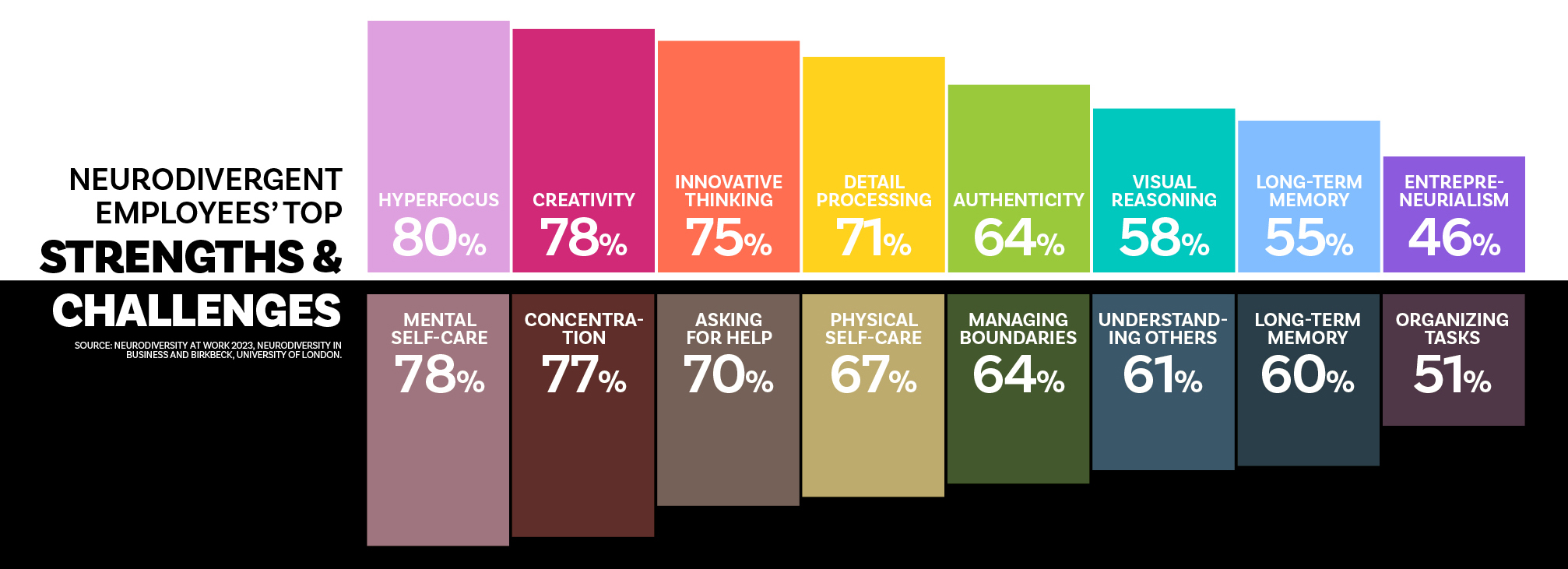But Yuen’s path to a successful internal audit career was bumpy, to say the least. After discovering internal auditing through a banking internship, earning a master’s degree in accounting, and passing the Certified Internal Auditor exam, the highly intelligent graduate encountered rejection after rejection due to communication missteps during job interviews.
Even after getting a handle on interviews and landing great jobs, the trouble didn’t end. In one role, she was nearly fired due to the inability to appropriately communicate; at another, she was placed on a performance review. Finally, after enduring a pattern where she would ascend in her audit roles and then descend due to communication issues, Yuen found herself lost in her career and falling into depression.
She sought help and learned she has Asperger syndrome, also known as Autism Spectrum Disorder. The disorder usually is associated with difficulty in picking up on social cues and interacting socially, a tendency to be direct and literal, anxiety, a need for structure, and hypersensitivity to certain stimuli. Like many women on the autistic spectrum, Yuen went undiagnosed until she hit a wall in her adult years.
“When I nearly lost my career, it was a great awakening that something was wrong,” Yuen says. “So, I met with a psychiatrist who performed testing and confirmed my diagnosis, got medicine, and began meeting regularly with a psychologist.”
Yuen is an example of someone with a neurodivergent condition who experiences challenges at work, yet can be successful with a correct diagnosis, support, and an inclusive workplace. And people like Yuen are not rare. According to A Rising Tide Lifts All Boats, by Deloitte, “roughly 10% to 20% of the global population is considered neurodivergent,” with cognitive conditions such as autism, obsessive-compulsive disorder, dyslexia, or attention deficit hyperactivity disorder (ADHD).
People with brain differences often have traits that make them desirable employees, yet they also suffer higher unemployment — as high as 85% for people with autism, according to Autism Speaks Canada. Organizations that learn to work with neurodivergent employees can greatly benefit from their hidden strengths — and gain access to a larger talent pool.
A Workplace Advantage
Some organizations are starting to realize that the neurodivergent population is both overlooked and highly capable. In Neurodiversity at Work 2023, a study by U.K. nonprofit Neurodiversity in Business and Birkbeck, University of London, researchers looked at both the strengths and difficulties of 990 neurodivergent workers (see "Neurodivergent Employees' Top Strengths & Challenges"). Along with challenges, employees in the study reported high rates of sought-after traits. The 127 employers who participated in the study rated their neurodivergent workers even higher for all these traits.
“Neurodivergent individuals think, communicate, and process information in different ways,” says Diana Mirakaj-Finnerty, CEO of Specialisterne USA, a global nonprofit that places autistic and similarly neurodivergent individuals and helps employers adopt neuro-inclusive practices. “These are not deficits but differences, and many of these differences are also strengths.”
Olla Jongerius, founder of Berlin-based BeamReach Inclusion, which offers corporate workshops, strategy design, and coaching on how to attract and support neurodivergent employees, points out that the neurodivergent population is a largely untapped market. “There is a massive war for talent — especially in tech companies,” she says. “There are simply not enough qualified candidates. And not to generalize, but a lot of people who are neurodivergent have an amazing talent of analyzing data or analyzing situations — of seeing things differently.”
Yuen says employees on the autistic spectrum can be a good fit for internal audit, especially if they have support. She lists pattern recognition, problem solving, and abstract thinking as skills many autistic people possess that can be an asset in internal auditing. These skills can help neurodivergent internal auditors more easily learn the skills needed for data analytics, for example, she says.
Another common trait is the ability to remain unemotional in the face of challenge. “Emotional detachment really makes us great auditors because we are not influenced by fear,” Yuen explains. “A lot of times, what I’ve experienced in fraud investigations and interviews is someone who is very defensive, who tries to knock you down, and says things like, ‘Who are you to ask me these questions?’” In these cases, Yuen says, she can easily deflect and redirect the person back to the questions.

Hiding in Plain Sight
Jongerius, who has ADHD, is quick to explain that employers can’t just hire a neurodivergent employee or diverse employees in general and expect instant innovation without some kind of culture change. Diversity and inclusion are two different things, she explains. “Diversity is a fact; inclusion is a choice. Inclusion is managed diversity.”
Jongerius sometimes uses a cloakroom analogy to explain the idea of inclusion. She asks: Can employees be their true selves, or do they have to leave their identities at the door, like shedding a coat? “It all goes back to organizational culture — how comfortable employees are at voicing their needs,” she says.
According to the U.K. study, many people are still not comfortable asking for help. Among neurodivergent employees, 65% say they worry about stigma and discrimination from management in disclosing their conditions or requesting support, and 55% say they worry about stigma and discrimination from colleagues. And employers may not have the resources to help — 40% of respondents say there are no supportive and knowledgeable staff.
Even though Yuen's doctors encouraged her to disclose her medical diagnosis at work, she at first hid her condition because of the perceived stigma. She says she did not want to be treated differently. “A lot of people ‘mask,’” says Jongerius, citing a term that describes mimicking “normal” behavior and hiding a condition to fit in. “It takes a lot of energy to wear this mask all the time. It’s linked to poor mental health.”
Changing the Culture
Yuen says she now knows what she needs to be successful in her job — things like clear instructions and agendas in meetings, honest and immediate feedback, transparency when things change, the ability to work from home and create her own workspace — and a work culture that allows her to be honest with co-workers about her neurodiversity. “I actually feel liberated when I can be my true self,” she says.
Mirakaj-Finnerty says a first step in ensuring employees feel safe enough to express their needs is making sure that disability and accessibility are part of the organization’s diversity, equity, and inclusion strategy. “If they aren’t, start again, because without disability, which includes the neurodiversity umbrella, you’ve missed the point,” she says.
A second step is to educate the workplace about brain differences. “Learn from and listen to people with lived experience,” Mirakaj-Finnerty says. “There are neurodivergent employees within your organization already, so give them the opportunity to step forward and have a voice — and when they do, don’t be afraid to ask questions because that’s the best way to discover more about someone.”
Dan Harris, CEO of Neurodiversity in Business, says honest, open communication from executives can go a long way toward making neurodivergent employees feel more accepted in the workplace. “If you can kind of set that culture right at the top, which is, ‘Look, we recognize that a significant portion of our folks are neurodivergent. We want them to be able to express themselves authentically, and we want to become more neuro-inclusive' — that, I think, is conducive to neurodivergent well-being," says Harris, who is diagnosed with both autism and ADHD.
Taking the stigma out of self-disclosure and working with people to determine their needs also may help reduce turnover, Harris says. The U.K. study backs this up. Of neurodivergent employees who report having no accommodations, 31.5% say they are “very likely to leave” their employer within the next year, compared to only 7.8% of respondents who report having accommodations tailored to their needs.
A Glimpse of Success
Some major employers have developed programs to specifically attract and retain different types of neurodivergent employees. Bank of America could be considered a pioneer in this aspect, having begun its Support Services program back in 1990. The program includes more than 300 team members with cognitive or developmental disabilities such as brain injuries, autism, or Down’s Syndrome, with an average tenure of 20 years at the bank.
Support Services Executive Mark Feinour says Bank of America partners with local agencies that work with neurodivergent adults. These nonprofits serve as both recruiters and coaches. “They are very familiar with the skills we’re looking for, the opportunities we have. So they know what to train and coach their clients on to make them ready when we do have an opportunity,” Feinour says. The bank continues to work with the support partner, as needed, to ensure each employee is successful — even outside the workplace.
Global software company SAP is another organization committed to working with neurodivergent employees. SAP’s Autism at Work program, which began in 2013, has a cohort of about 215 autistic employees. The program provides accommodations and support to a mix of full- and part-time employees, interns, vocational trainees, and contractors who work in technical and nontechnical roles, with no limitations on types or levels of roles.
“We believe that people on the spectrum are as capable of performing in their jobs as neurotypical people,” says Sarah Loucks, Autism at Work global lead in the Global Diversity & Inclusion Office at SAP. “Autism at Work taps into an underutilized talent source by reducing barriers of entry so that qualified individuals can fully develop their potential.”
Both Bank of America and SAP work with outside organizations to provide training and education to managers and staff who work with neurodivergent employees. SAP offers a Candidate Experience Guide to hiring managers and recruiters that details how to create an “autism-inclusive hiring experience.”




